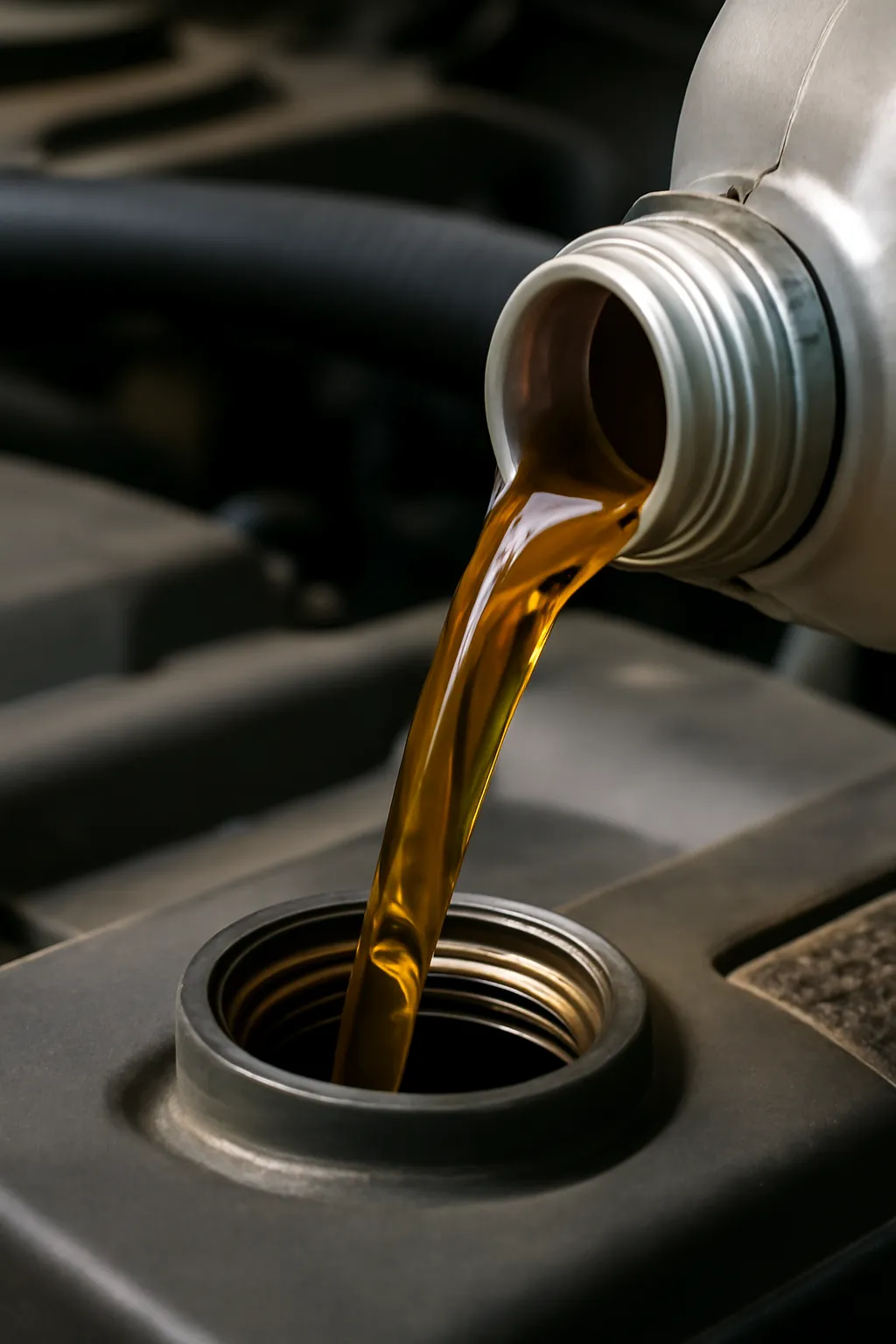Gasoline engine oil is crucial for maintaining the smooth performance and longevity of your engine. Whether you’re a car enthusiast or someone simply looking to maintain your vehicle in good condition, understanding the importance of choosing the right oil grade can save you time, money, and unnecessary engine repairs. In this article, we will explore the different gasoline engine oil types, what grade is recommended for your car, and how to increase the oil’s lifespan to get the best out of your vehicle.
Understanding Gasoline Engine Oil Types
When selecting engine oil, it’s vital to understand the various types available in the market. Each type is designed to meet specific engine needs, and choosing the right one can significantly impact engine performance.
1. Conventional Oil
Conventional oil is the most basic form of engine oil, made from refined crude oil. It’s typically the least expensive option and is recommended for older vehicles or those with fewer technological advancements. Although it does an adequate job of lubricating your engine, it tends to break down faster and may need to be changed more frequently.
2. Synthetic Oil
Synthetic oil, on the other hand, is a man-made lubricant, designed to offer superior protection against heat and oxidation. It’s ideal for newer vehicles or those that require high-performance standards. Synthetic oil can handle higher temperatures and offers better protection, meaning it doesn’t break down as quickly as conventional oil. While it’s more expensive, the benefits it offers, especially in terms of engine longevity, are undeniable.
3. Semi-Synthetic Oil
A blend of conventional and synthetic oils, semi-synthetic oil offers a middle ground in terms of price and performance. It’s suitable for those who want the benefits of synthetic oil but don’t want to pay the full price. Semi-synthetic oil provides better protection than conventional oil while being more affordable than fully synthetic oil.
4. High-Mileage Oil
For vehicles with over 75,000 miles, high-mileage oils are formulated to help keep older engines running smoothly. These oils contain additives that help reduce oil burn-off, prevent leaks, and minimize wear and tear on older engine components.
Understanding these different types can help you choose the best one based on your vehicle’s needs and your budget.
👉Learn More About Engine Oil Types👈
The Recommended Gasoline Engine Oil Grade
Choosing the right oil grade is just as important as selecting the right oil type. Engine oil grades are determined by a number followed by the letter ‘W’ (for winter), indicating the oil’s viscosity or thickness.
1. 5W-30
This is one of the most common oil grades recommended for modern gasoline engines. It provides optimal performance in both hot and cold temperatures. The “5W” represents the oil’s ability to flow at low temperatures, making it a good choice for regions with colder climates. The “30” refers to the oil’s thickness at higher temperatures. Most newer cars use 5W-30 due to its balanced properties.
2. 10W-30
This oil grade is slightly thicker than 5W-30 and is typically recommended for older vehicles, especially those in warmer climates. The 10W indicates the oil’s ability to handle slightly higher temperatures, while the “30” still offers the same protection at operating temperatures. However, this oil is less effective in cold weather than 5W-30.
3. 0W-20
For vehicles that demand high fuel efficiency or those in extreme cold conditions, 0W-20 oil is a great choice. It has an excellent ability to flow at low temperatures, ensuring the engine gets lubricated quickly during a cold start. The “20” indicates the oil’s thickness at higher temperatures, which is ideal for modern engines that require thinner oils for better fuel economy.
4. 15W-40
This grade of oil is often used in heavy-duty vehicles or high-performance engines. It has a thicker consistency, making it a suitable choice for hot climates or vehicles subjected to high stress, like trucks or sports cars. It’s less ideal for cold-weather starts due to its higher viscosity at low temperatures.
When selecting an oil grade, always refer to your vehicle’s owner’s manual, as manufacturers will specify the oil grade that best suits your engine’s design and operational needs.
👉Find Your Recommended Oil Grade Here👈
Increasing Gasoline Engine Oil Longevity
The longevity of your gasoline engine oil is crucial for maintaining the engine’s health. Regular oil changes are essential, but there are ways to extend the life of the oil you’re using, so it performs optimally for longer periods.
1. Regular Oil Changes
Although modern synthetic oils can last longer than conventional oils, regular oil changes are still necessary. The general recommendation is to change the oil every 3,000 to 5,000 miles for conventional oil, and up to 7,500 miles for synthetic oils. If you drive in harsh conditions, such as extreme heat or stop-and-go traffic, more frequent changes may be required.
2. Check Oil Levels Frequently
Maintaining the right oil level is essential for preventing engine damage. Low oil levels can lead to overheating and increased wear. Regularly checking the oil using the dipstick ensures you’re aware of any oil loss, so you can top it up or replace it before it becomes an issue.
3. Use High-Quality Oil Filters
A high-quality oil filter can help remove contaminants from the oil, ensuring it remains clean and effective for longer. It’s also a good practice to replace the oil filter every time you change the oil, ensuring the system works at its best.
4. Opt for Extended Performance Oils
Some synthetic oils are specifically designed for extended performance, offering additional protection against oxidation and sludge buildup. These oils are formulated to last longer and maintain engine cleanliness over time.
5. Avoid Short Trips
Frequent short trips prevent the engine from reaching its optimal temperature, which can lead to the buildup of moisture and contaminants in the oil. If possible, try to avoid excessive short-distance driving, or ensure you take longer drives periodically to help the oil perform at its best.
With these steps, you can ensure your gasoline engine oil lasts as long as possible, reducing wear and extending the lifespan of your engine.
👉Learn How to Increase Oil Lifespan👈
Conclusion
In conclusion, selecting the right gasoline engine oil grade and type is essential for optimal engine performance and longevity. Regular maintenance and being mindful of oil changes, oil levels, and other factors like the oil filter can help maximize the lifespan of your engine oil. By understanding the different types and grades of gasoline engine oil, you can make an informed decision that will ensure your engine runs smoothly for years to come.
As the saying goes, “An ounce of prevention is worth a pound of cure,” and when it comes to your engine, preventive maintenance will always be the best route to take.






